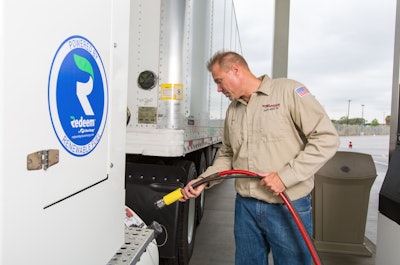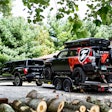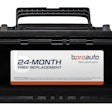A renewable natural gas (RNG) headline that doesn’t mention California?
Seems strange, but it’s true as natural gas leader Clean Energy Fuels announced this week that it landed its first RNG customer in New York, a municipality that will be using its ultra-low emissions fuel, Redeem, in 80 refuse trucks.
Clean Energy has been providing natural gas to the town of Brookhaven since 2008. But relative newcomer RNG is considered cleaner—much cleaner than any alternative fuel. It’s the only alt fuel certified by the California Air Resources Board with a negative carbon index (CI) score. No other fuel comes close. That’s because RNG is derived from methane which CARB considers to be a highly destructive greenhouse gas. Since that methane is not released into the atmosphere and instead is transformed into clean-burning RNG, the CI score drops.
An expected volume of 550,000 gasoline gallon equivalents (GGEs) of Redeem will annually power Brookhaven’s 80 new refuse and recycling trucks. Once the fuel is paired up with Cummins-Westport natural gas engines, emissions are nearly zero.
Word is traveling fast about Clean Energy’s Redeem RNG. Company shares are up roughly 41 percent on the year, according to The Motley Fool. Turns out the ultra-low emissions fuel also provides attractive tax credits and stable prices.
“Cities are seeking ways to improve the environmental impact of their vehicles and shield themselves from volatile diesel prices,” said Chad Lindholm, vice president, Clean Energy. “RNG, the cleanest fuel available today, is the logical choice of municipal fleets from a variety of geographic regions and markets.”
But it seems no RNG story can stray too far from the Golden State where demand for RNG is strongest.
For instance, the City of Culver City, which operates CNG public transit, refuse, and other municipal fleet vehicles at its station, signed with Clean Energy for over 700,000 GGEs of Redeem annually. Clean Energy also made modifications to the Culver City station, upgrading its compressors.
Additionally, the City of Beverly Hills has signed a 5-year RNG supply contract with Clean Energy for its private time fill station that fuels an expanding refuse fleet.
Given the growing interest in Redeem and the fact that Clean Energy is the largest provider of RNG, CNG and LNG in North America, it doesn’t hurt to reach out and learn more, which we did. Special thanks to Clean Energy vice-President and General Manager Tyler Henn for taking the time to answer our questions.
HWT: What is the approximate cost difference between RNG and CNG? Do RNG tax credits/incentives differ from CNG? If so, how?
Henn: In most cases, RNG is being supplied to fleets at parity to CNG, and additional environmental credits allow CNG station owners to receive additional revenue by receiving a share of total revenues generated.
HWT: What makes RNG the cleanest fueling option available?
Henn: It is the lowest carbon intensity (CI) fuel that is commercially available today with proven engine technology in the NGV medium- and heavy-dduty vehicles. The average CI of RNG represents a 70 percent reduction in GHG emissions to ULSD, and negative CI fuels will soon also be available to CNG and LNG fleets.
HWT: Are more fleets expressing a greater interest in RNG? If so, why?
Henn: Yes, more fleets are interested as they recognize that RNG is likely the single most cost-effective method of reducing GHG emissions today, and with technology that won’t disrupt or change their most important operations.
HWT: Are there any performance differences between RNG and CNG? If so, please briefly describe.
Henn: RNG is injected at the RNG production facility into the national natural gas pipeline infrastructure, where it is commingled with fossil natural gas. Because it represents a fraction of the total natural gas within that infrastructure, the RNG that is delivered to a fleet is identical to fossil CNG on a molecular level.
HWT: Is RNG pricing less volatile than other natural gas fuels?
Henn: The gas commodity price is the same for RNG and CNG, but the additional environmental credit revenues available when fueling with RNG make it an attractive option to any fleet considering adopting CNG or deploying additional CNG vehicles.











